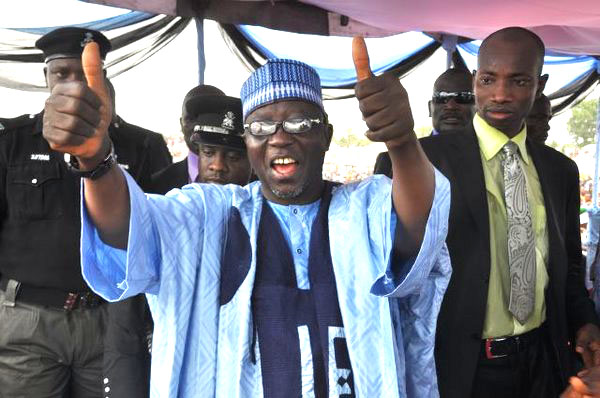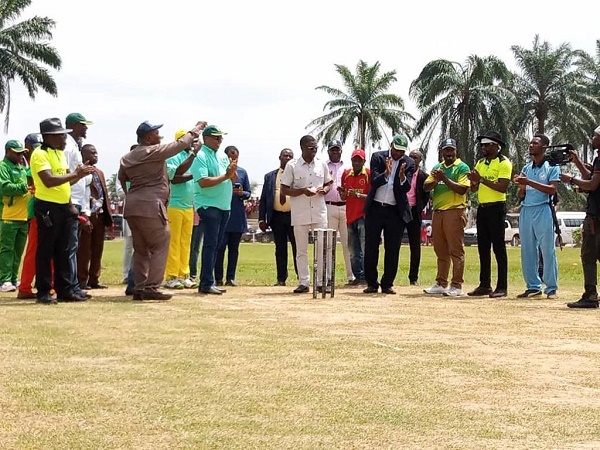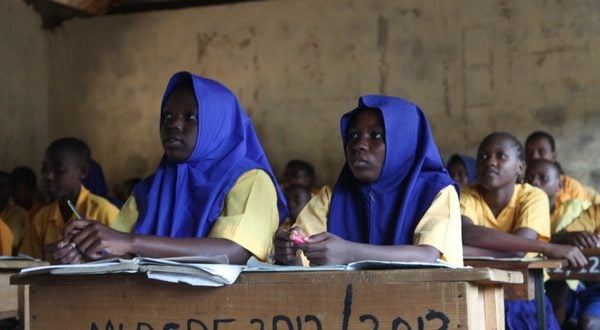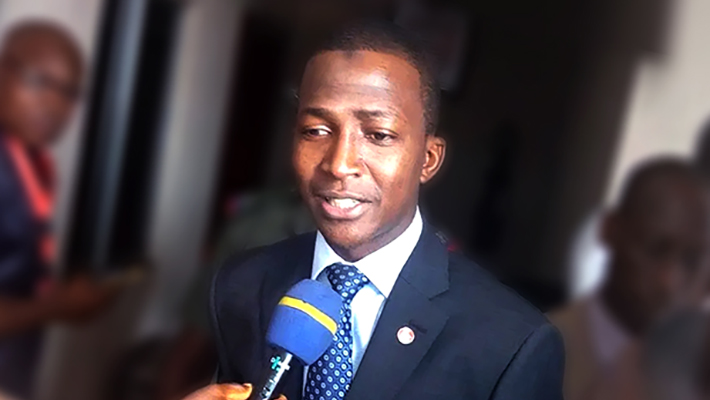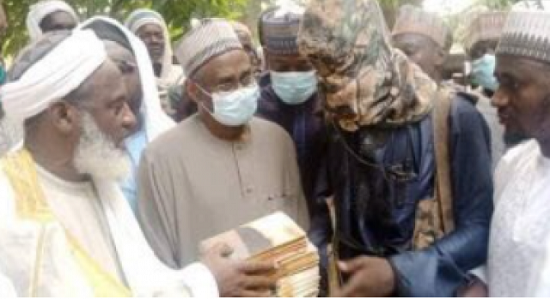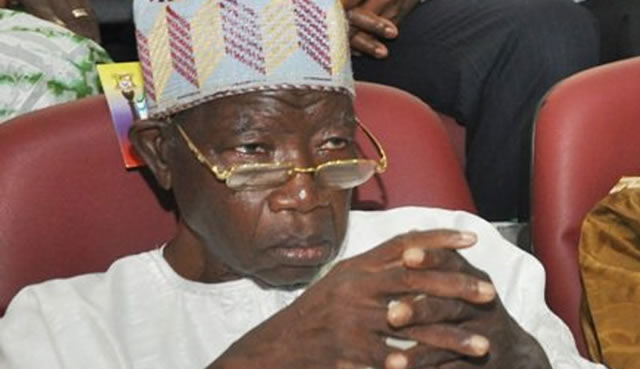BY NDUBUISI EZENNA
In a recent interview, which featured Senator Tanko Al-Makura’s young daughter, Iman, she made a statement about her father, which profundity she might not have understood. Asked if her choice of career ever pitched her against her parents, given that as holder of a combined honours degree in Law and International Relations, University of Sussex, UK, she could have used her father’s influence to secure for herself a juicy job or live on her parent’s affluence like other children of the ruling class, Iman said: “My father is a very, very simple man. The same goes for my mother. And don’t forget that my father is a businessman…. His father, that is, my grandfather, was equally a renowned businessman.”
It was not just an apt description of the man, but also a domestic endorsement of the Al-Makura the outsiders see. In other words, what the world sees is the true picture of the former Governor of Nasarawa State. Down to earth, nothing about the Ahmadu Bello University graduate gives him away to anyone meeting him outside the corridors of power as one of the men, who ‘run the show’ in the country.
He was already a multi-billion Naira businessmen before coming into politics. He has been an astute businessman since the 70s. He is the Chairman of Al-Makura Nigeria Limited, a company that is into importing and servicing agricultural and industrial machinery. He is also a big player in the real estate sector with his company, Ta’al Nigeria Limited having properties in Nigeria’s major cities and in the United States of America. Al-Makura is also the owner of the prestigious Ta’al Lake Resort, Abuja and the Ta’al Conference Hotel, Lafia. Those who know him well, say he was a very content man before he dabbled into politics. Yet you don’t see it in his unassuming conducts.
Advertisement
Political Tenacity
But Al-Makura depicts the lion: he moves quietly, but shows mettle, and strength when the chips are down. In 2011, for instance, the Peoples Democratic Party (PDP), which was the dominant party in his native Nasarawa State, toyed with the lion’s tail over the governorship ticket. Al-Makura picked the ticket of the newly formed Congress for Progressive Change (CPC) where he beat the PDP.
However, it was not by any chance his political baptism. In 1980, Al-Makura was already the Youth Leader of the defunct National Party of Nigeria (NPN) in the old Plateau State. The NPN was the ruling party in Nigeria, but the main opposition in old Plateau State, which was then controlled by the Nigeria Peoples Party (NPP) and those who knew the young Al-Makura said he was a hard nut to crack.
Advertisement
By the time the former military President, General Ibrahim Babangida (Rtd) was working towards a new constitution in line with the regime’s transition to civil rule programme, Al-Makura was elected into the 547-member 1988/1989 Constituent Assembly headed by the late Justice Anthony Aniagolu, JSC. He consolidated his experience and knowledge of party administration and politics with his election and service as the State Secretary of the National Republican Convention (NRC) from 1990 to 1992. He joined forces with compatriots in the United Nigeria Congress Party (UNCP) in the days of General Sani Abacha’s ill-fated transition programme.
At the nurturing of the present democratic dispensation, Al-Makura joined the PDP as a founding member and paid his dues as a grassroots mobliser and political machine. He worked for the party and was one of its financiers. But the party let him down. In 2007, the PDP ceded its governorship ticket to the Alhaji Aliyu Doma (may his soul rest in peace). Meanwhile, Doma joined the PDP fold in 2006 after contesting against the party as the governorship candidate of the All Nigeria Peoples Party (APP/ANPP) in 1999 and 2003. Although Doma won the 2007 election, there were general discontent among Nasarawa PDP and the people with his performance and Al-Makura was among those, who challenged the incumbent governor for the PDP ticket in the 2011 governorship election.
Denied the PDP ticket in what many have considered as very questionable circumstances, the Al-Makura Campaign Organisation pressed on, insisting Doma’s emergence in 2007 was an error that had resulted in lack of quality leadership and democracy dividends, and must be corrected.
“We cannot fold our arms and watch while the state is drifting into a bottomless pit. We want to rise up now to get him out of office through a popular mandate. This is the time to correct the error that was made in 2007”, the campaign organisation had told newsmen at the time.
Advertisement
But actualising a governorship or any other political ambition in Nasarawa outside of the PDP at the time was more like the dream of a malaria patient. “Since the advent of democracy in 1999, Nasarawa has been governed by the PDP. This total domination of power by the PDP has led to the near absence of viable political parties in the state, as virtually the entire political force congregate under the PDP in a stiff contest for control of power. The calculation is that a ticket of the PDP to contest for any position is as good as a victory in the general elections”, a national daily stated in its August 2010 analysis. It concluded that “On the face value, the PDP looks set to retain the governorship seat in 2011.”
Nevertheless, the silent hurricane, Al-Makura, rose to the challenge, leading his supporters to the newly formed CPC where Muhammadu Buhari was the presidential candidate and successfully enacted one of the major upsets of the 2011 election by defeating incumbent Governor Doma.
However, with CPC occupying only four out of 24 seats of the State House of Assembly, Al-Makura was like a man dropped in the pond of sharks and needed skillful maneuver through obstacles, harassments and threats posed by a PDP-dominated House, their federal might, and forces of the old order, surviving a scary impeachment attempt in 2014.
Despite all this tribulation as the only CPC Governor, Al-Makura refused to defect to or take cover in the ruling PDP. He remained loyal to the party and even went on to win a second term in 2015, leaving behind trailblazing records in good governance and democracy dividends in 2019. The incumbent, Governor Abdullahi Sule, described him as the architect of modern Nasarawa State.
Advertisement
Lone Governor, jinx breaker
Al-Makura was the only governor the CPC legacy party brought to the merger talks that birthed the All Progressives Congress (APC); and that the same party produced APC’s presidential candidate in 2015 showed the popularity of Muhammadu Buhari and the political deftness of that CPC’s lone governor, Al-Makura.
Advertisement
All politics is local. It was not totally surprising that President Goodluck Jonathan won Buhari (CPC) in 2011 election, polling 408,997 votes as against Buhari’s 278,390 given the underpinning ethno-religious sentiments and PDP’s hitherto entrenchment in Nasarawa politics. Even in the 2015 election won by Buhari as APC’s candidate, he still lost narrowly to Jonathan in Nasarawa by 236,839 votes as against Jonathan’s 273,460. But by 2019, Al-Makura mobilized to break the jinx, as PDP’s Alhaji Atiku Abubakar polled 283,847 votes, while Buhari garnered 289,903 votes.
In addition, APC clinched the entire three senatorial seats in the state for the first time since 1999, including the Nasarawa South senatorial seat where Al-Makura swept the polls to take his rich leadership experience to the Ninth Senate.
Advertisement
As the lone Governor of Buhari’s defunct party, CPC; as one who showed absolute faith in President Buhari and believed in him so much as not to defect or abandon him, there is no doubt that Al-Makura should be a close ally and confidant of the President, who himself does not joke with loyalty. What surprises many, however, is that Al-Makura does not throw his weight about or engage in influence peddling. He goes about his legislative businesses quietly and responsibly.
Search for new APC Chairman
Advertisement
Against this backdrop, it is not surprising that many have continued to point in his direction as APC’s search for Comrade Adams Oshiomhole’s replacement gathers momentum, with Governor Sule as the cheerleader. This is an uncommon scenario in a polity where relationships between predecessors and their incumbents are that of cat and dog. This in itself underscores Al-Makura’s ability to manage political relationships.
Al-Makura has become the proverbial elephant explored by nine blind men, each describing the elephant based on his experience. To some, it is Al-Makura’s mettle, maturity, humility, widespread, and goodwill. To others, it is his consistency, loyalty, and pan Nigerian and metropolitan nature. But to many, he has paid his dues as a party financier. Yet many more believe in his record as a party administrator, political strategist, and a silent hurricane.
However, there are many, including Governor Sule, who believe that it is now CPC’s turn to chair the party since virtually every other legacy party has occupied the position. “If Nigeria would be kind to CPC, Nasarawa State is the place to look at so that you can be kind to CPC”, Sule said.
While Al-Makura ponders the overtures, there is no doubt that the Governor Mai Mala Buni-led Interim National Working Committee of the APC has done a great job trying to reinvent and reconcile the party. Therefore, someone in the Senator’s mold deserves the opportunity and should be encouraged to step in as the next Chairman of the APC to consolidate on the gains made so far.
Ezenna is a political analyst
Views expressed by contributors are strictly personal and not of TheCable.
